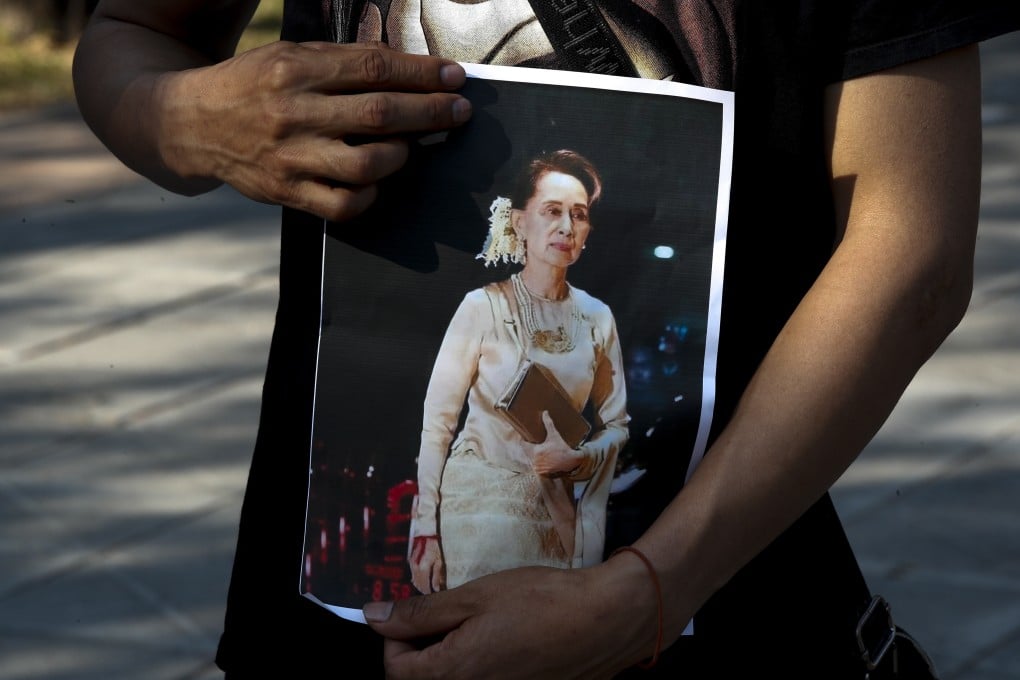US has been unable to contact Aung San Suu Kyi in Myanmar coup aftermath, it says
- State Department is working with Japan, India and ‘other countries [that] have better contact with Burmese military than we do’
- US humanitarian assistance for Rohingya Muslims, many of whom have fled Myanmar to escape violence, will continue

The US government said on Tuesday that it has not been able to contact leading members of Myanmar’s civilian government, including de facto leader Aung San Suu Kyi, and is working with Japan and India to put pressure on the country’s military for deposing the leaders in a “coup d’etat”.
“Our understanding is that most of the senior officials are under house arrest, and the [National League for Democracy] leadership as well as some of the regional government figures and civil society figures, but we’ve not been able to reach them,” a State Department official told reporters.
“We have certainly been in frequent contact with our like-minded allies and partners in the region,” the official said. “We’re having daily ongoing conversations with [Japan and India], and we certainly appreciate that some other countries have better contact with Burmese military than we do so we’re continuing those conversations.”
The United Nations has also failed to contact Suu Kyi and her political cohorts, UN spokesman Stephane Dujarric said on Tuesday.

01:20
Myanmar’s army declares state of emergency after leader Aung San Suu Kyi detained during raid
Christine Schraner Burgener, the UN’s special envoy on Myanmar, “has been trying to raise her regular interlocutors in the country, and as far as I know that has not been 100 per cent successful,” Dujarric said. “She’s also spoken to others outside of the country, but communications remains a very big challenge.”